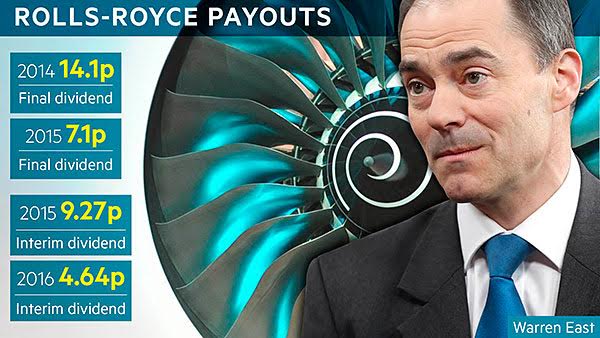Rolls-Royce prepares to bring ValueAct on board

Roula Khalaf, Editor of the FT, selects her favourite stories in this weekly newsletter.
Rolls-Royce is preparing to back a bid by ValueAct for a seat on the board, giving the US-based activist investor influence over the UK’s flagship engineering company as it seeks to recover from a string of profit warnings.
The San-Francisco based fund, Rolls-Royce’s largest shareholder with a 10 per cent stake, has met some of the company’s other leading shareholders several times in recent weeks to assuage concerns about its intentions on the board.
Bradley Singer, chief operating officer of ValueAct Capital and a former vice-president of Discovery Communications, has led some of those meetings and is being mooted as the fund’s candidate for a board seat.
Rolls-Royce said on Tuesday that no decision had been taken to support or reject ValueAct’s request.
However, the US fund has gone some way to reassuring the company’s board, its management and investors that it will not push for a divestment of the group’s non-aerospace units or squeeze the business for cash, say people with knowledge of the situation. It was clear that the fund shared many of the same aims as management, said one.
Another person said that an announcement could come in the next few weeks, for a vote at the annual meeting on May 5.
Rolls-Royce directors have been keen to sound out shareholders before taking a decision on whether to support ValueAct’s nomination to the board. They have stressed to investors that they would only support a candidate who could bring value and who might have been chosen whether or not ValueAct was a shareholder.
One leading investor said that he had been impressed with Mr Singer and his knowledge of the company. “They knew the business and they seem to be aligned with where we want the company to be,” the investor said. “They are not going to come in and kill the R&D or capex to take as much cash out as possible. And he will only be one of many people on the board.”
In contrast to more well-known activist hedge funds, such as those run by Carl Icahn, Bill Ackman and Daniel Loeb, ValueAct rarely voices public criticism of its investee companies, preferring to work behind the scenes when it believes strategic change or a management shake-up is needed. In most cases, that involves pushing for a board seat, from where it can be more involved in decisions.
Mr Singer is already on the board of another ValueAct investment, Motorola Solutions, the telecoms equipment maker, and he previously sat with ValueAct founder Jeff Ubben on the board of Martha Stewart Living Omnimedia during the turmoil after its eponymous founder was jailed for insider trading.
Sources familiar with early conversations between ValueAct and Rolls-Royce say that the hedge fund has been pushing the company to accelerate its cost-cutting plans as it deals with the transition to a new generation of aero engines.
It may later push for the divestment of the company’s non-aerospace businesses, including marine turbines, although those shareholders who have met ValueAct management more recently said this was not a priority.

In the months before it took its stake in Rolls, ValueAct researched the background of Warren East, chief executive, before deciding to back him. Mr East has declared his support for a diversified strategy, although he has hinted that there could be some rationalisation of the marine businesses and products.
Some of ValueAct’s recent investments have included Microsoft, where it took a board seat and helped ease out Steve Ballmer, the former chief executive, and the insurance group Willis, where it was an advocate for the merger with Towers Watson.
The fund was also instrumental in building Valeant Pharmaceuticals through a string of acquisitions in the 10 years since it emerged as an activist at the company.
Comments